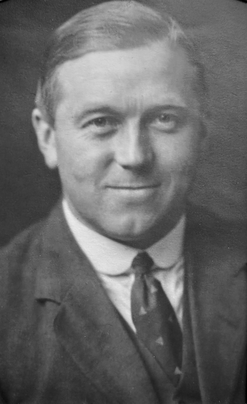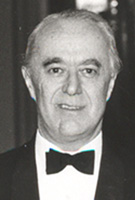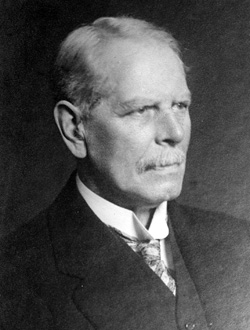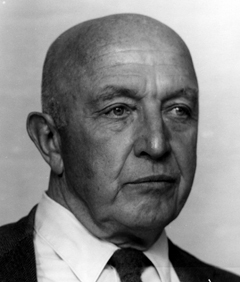Related Research Articles

The Royal Infirmary of Edinburgh (RIE), often known as the Edinburgh Royal Infirmary (ERI), was established in 1729 and is the oldest voluntary hospital in Scotland. The new buildings of 1879 were claimed to be the largest voluntary hospital in the United Kingdom, and later on, the Empire. The hospital moved to a new 900 bed site in 2003 in Little France. It is the site of clinical medicine teaching as well as a teaching hospital for the University of Edinburgh Medical School. In 1960, the first successful kidney transplant performed in the UK was at this hospital. In 1964, the world's first coronary care unit was established at the hospital. It is the only site for liver, pancreas and pancreatic islet cell transplantation and one of two sites for kidney transplantation in Scotland. In 2012, the Emergency Department had 113,000 patient attendances, the highest number in Scotland. It is managed by NHS Lothian.

Sir John Fraser, 1st Baronet, was Regius Professor of Clinical Surgery at Edinburgh University from 1925 to 1944 and served as principal of the University of Edinburgh from 1944 to 1947.

Sir John Batty Tuke PRCPE FRSE LLD was one of the most influential psychiatrists in Scotland in the late nineteenth century, and a Unionist Member of Parliament (MP) from 1900 to 1910. Tuke's career in Edinburgh from 1863 to 1910 spanned a period of significant social and political changes in asylum governance and care in Scotland. Tuke's professional success in public and private practice and his powerful role in several prominent medical societies allowed him to influence his colleagues toward a more physiological understanding of mental illness and its treatment.

Sir Thomas Grainger Stewart was an eminent Scottish physician who served as president of the Royal College of Physicians of Edinburgh (1889–1891), president of the Medico-Chirurgical Society of Edinburgh, president of the medicine section of the British Medical Association, and Physician-in-Ordinary to the Queen for Scotland. He was perhaps best known for describing the condition known as multiple neuritis as well as directing scientific attention in Great Britain to the deep reflexes.

Sir James Rögnvald Learmonth (1895–1967) was a Scottish surgeon who made pioneering advances in nerve surgery.

Charles Frederick William Illingworth was a British surgeon who specialised in gastroenterology. Along with a range of teaching and research interests, he wrote several surgical textbooks, and played a leading role in university and medical administration.

Douglas James Guthrie FRSE FRCS FRCP FRCSEd FRCPE was a Scottish medical doctor, otolaryngologist and historian of medicine.

David Maclagan MD, FRSE, FRCSEd, FRCPE was a prominent Scottish medical doctor and military surgeon, serving in the Napoleonic Wars. He served as President of both the Royal College of Physicians of Edinburgh and the Royal College of Surgeons of Edinburgh. He was Surgeon in Scotland to Queen Victoria.

Sir John Halliday Croom FRSE PRCPE PRCSE was a Scottish surgeon and medical author. He served as President of the Royal College of Surgeons of Edinburgh.
Sir Alfred Cuschieri is a Maltese-British surgeon and academic. He is most notable for his pioneering contribution to the development and clinical implementation of minimal access surgery, also known as key-hole surgery. He has been Professor of Surgery at the Scuola Superiore Sant'Anna in Pisa, Italy, since 2003 as well as Chief Scientific Advisor to the Institute of Medical Science and Technology at the University of Dundee since 2008.

Sir John Bruce, was a Scottish surgeon who was Regius Professor of Clinical Surgery in the University of Edinburgh and President of the Royal College of Surgeons of Edinburgh.

Thomas Jaffrey McNair CBE, FRCS, FRCSEd was a Scottish surgeon who acted as editor of Emergency Surgery, one of the most widely read textbooks on the subject. Originally a general surgeon, in the latter part of his career he devoted his practice increasingly to colo-rectal surgery. He was Surgeon to the Queen in Scotland and served as President of the Royal College of Surgeons of Edinburgh.

James Alexander Ross MBE, FRCSEd was a Scottish surgeon awarded the MBE for his service in the Second World War. He was a leading member of the surgical team which, in 1960, carried out the first successful kidney transplant in the United Kingdom. He served as President of the Royal College of Surgeons of Edinburgh.

Sir James David Fraser, 2nd Baronet, FRCS, FRCSEd was a Scottish academic surgeon and a foundation professor at the medical school of Southampton, England, when it was established in 1969. He subsequently became Postgraduate Dean at the University of Edinburgh and served as President of the Royal College of Surgeons of Edinburgh from 1982 to 1985.

James Johnston Mason Brown OBE, FRCSEd was a Scottish paediatric surgeon. During World War II he served as a surgical specialist with the 8th Army in North Africa and Italy and was awarded the OBE for this service. As surgeon-in-chief at the Royal Hospital for Sick Children in Edinburgh, he edited the major textbook The Surgery of Childhood. He was the joint founder of the Scottish Surgical Paediatric Society and a founder member of the British Association of Paediatric Surgeons (BAPS), of which he became president. He was elected President of the Royal College of Surgeons of Edinburgh (RCSEd) in 1962 but died in office aged 56 years.

Sir David Wallace, KBE, CBE, CMG., LL.D, FRCSEd. was a Scottish surgeon working in Edinburgh, with a particular interest in urological surgery. During the Boer War he was in charge of the Edinburgh South African Hospital, an experience which impressed upon him the importance of the Red Cross movement in reducing and mitigating the horrors of war. Becoming active in the British Red Cross Society, he was instrumental in forming the Edinburgh branch and was its Chairman for over 30 years. He was knighted in 1920 and elected President of the Royal College of Surgeons of Edinburgh in 1921.
Patrick Stewart Boulter FRCS, FRCSEd was a general surgeon in Guildford, England. He developed a sub-speciality interest in breast surgery and was one of the pioneers in the UK of screening for breast cancer. He served as president of the Royal College of Surgeons of Edinburgh from 1991 to 1994.
Sir Neil James Douglas was a medical doctor and was president of the Royal College of Physicians of Edinburgh (RCPE) 2004–2010 and chairman of the Academy of Medical Royal Colleges (AoMRC) 2009–2012.

Sir Donald Macleod Douglas, was a Scottish academic surgeon. His schooling and medical undergraduate education were at St Andrews following which he embarked at an early stage on an academic career, winning a scholarship to pursue research at the Mayo Clinic, Minnesota.

Ian Scott Smillie OBE, FRCSEd was a British professor of orthopaedic surgery who became an international authority on conditions of the knee. He devised techniques and instruments to facilitate the surgical excision of the damaged knee meniscus. He was an early advocate of specialist team care in orthopaedics and of early mobilisation. His textbooks Injuries of the knee joint and Diseases of the knee Joint were widely read throughout the world. In 1981 he was elected president of the International Society of the Knee.
References
- 1 2 Foster, Jim (23 June 2003). "Profession salutes medical knight fully deserving of his reward". The Scotsman. Retrieved 28 May 2017.
- 1 2 3 "Honorary degrees 2014: Professor Sir John Temple, Kt". University of Bristol . Retrieved 8 August 2015.
- ↑ "'Lone wolf' doctors accused in damning health report". Scotland on Sunday. 30 June 2002. Retrieved 28 May 2017.
- ↑ "Call for shake-up in Scotland's NHS". The Scotsman. 3 July 2003. Retrieved 28 May 2017.
- ↑ Orr, J. D. (1 April 2008). "Surgical training – Post Tooke". Surgeon. 6 (2): 67–68. doi:10.1016/S1479-666X(08)80065-0.
- ↑ Barrenger, Daniel (9 June 2010). "NHS 'relies on trainees'" . The Independent . Archived from the original on 13 June 2022. Retrieved 28 May 2017.
- ↑ "Fellows directory: Ordinary Fellows: Professor Sir John Temple". Academy of Medical Sciences . Retrieved 8 August 2015.
- ↑ Minute Books of the Harveian Society. Library of the Royal College of Physicians of Edinburgh.
- ↑ "Birthday honours list". The Scotsman . 16 June 2003. Retrieved 8 August 2015.